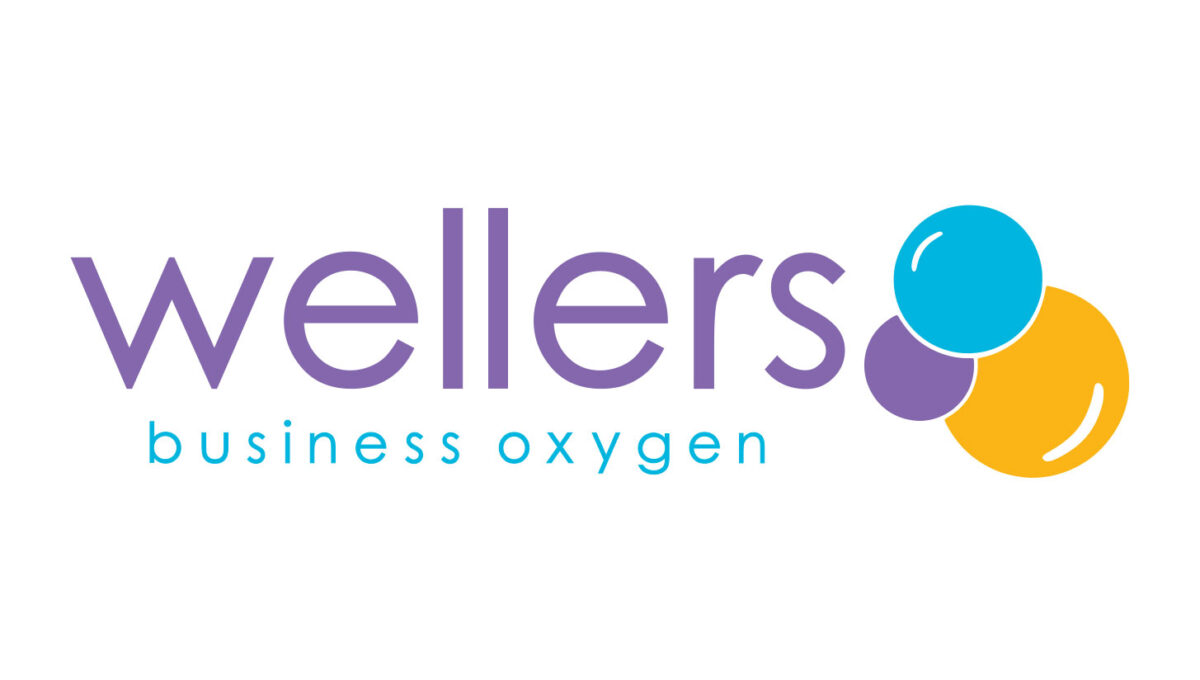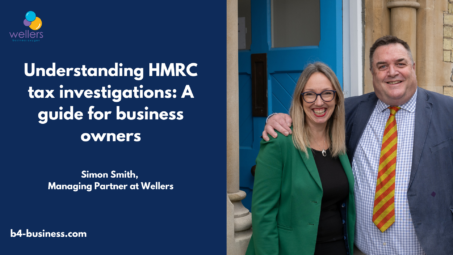
What is corporation tax in the UK
Beth Whitmore FCCA explains exactly what corporation tax means for your business and the reliefs and allowances you need to explore.
As you commence trading you may soon discover that corporation tax is one of the most important taxes you’ll have to calculate and pay. That is why we’ve written this post for limited company start-ups, to help you understand:
- How corporation tax is calculated
- When and how to submit a company tax return
- When this tax liability needs to be paid
Use available reliefs and allowances to reduce your corporation tax liability >
A corporation tax definition
Corporation tax is paid by UK limited companies and some other organisations. It is based on the annual profits that a company makes. All profits are taxable however, certain specific expenses can be deducted, and there are allowances you can make use of to help reduce your tax liability.
Corporation tax specifically applies to the following for a limited company:
- Trading profits – earnings generated from doing business
- Investments
- Selling assets such as land, property, shares, and machinery for a chargeable gain
Who pays corporation tax?
Corporation tax has to be paid by all UK limited companies. Sole traders and partnerships don’t pay corporation tax, instead they have to fill out a tax return and apply income tax to their earnings.
There are however, other organisations that may need to pay corporation tax despite not being incorporated as limited companies. These include:
- Housing associations
- Membership organisations
- Clubs and societies
- Co-operatives
How much is corporation tax in the UK?
The corporation tax main rate in the UK is set at 19% for all business profits. The rate will remain at this level for the next 2 years, thereby reversing a previous previous government pledge which had been to reduce it to 17% from April 2020.
How the corporation tax rate will change from April 2023
In the Budget 2021, the government announced future changes to the corporation tax rate.
From April 2023, if your taxable profits are above £250,000 then you’ll be subject to an upper limit of 25%. If your profits are £50,000 or less then you’ll be subject to a lower limit rate of 19%. If your profits are in between the lower and upper limits then you’ll pay a marginal rate of effectively 26.5% but will have the benefit of marginal relief.
| Corporation tax rates from 2021 – 2023 | |||
| 2021/2022 | 2022/2023 | 2023/2024 | |
| Upper limit(Profits >£250,000) | 19% | 19% | 25.0% |
| Marginal rate(£50,000 – £250,000) | 19% | 19% | 26.5% |
| Lower limit(≤£50,000) | 19% | 19% | 19.0% |
How to register for corporation tax and responsibility
When starting up through a limited company, you’ll need to register for corporation tax. You can do this through HMRC on the Gov.uk website. Details you’ll be asked to fill in include:
- Company name
- Registration number
- Your business start date (the start date on your company’s accounting period)
- The main address
- Type of business
- Name and home addresses of the directors
You have to do this within 3 months of commencing trade. It’s the duty of the company director to fill in the company tax return, file it, and then pay the bill. You can hire an accountant to do this on your behalf however, responsibility from a legal perspective still rests with a director.
Filing a company tax return
You have to complete a company tax return, CT600 every year. You also have to file your company accounts with HMRC and Companies House. Some of the items you’ll need to include in the CT600 are your turnover and profit for the reporting period, your tax calculations, and the allowances and reliefs you’ve made use of.
This will then inform you how much corporation tax you will owe. Remember, you have to file your company tax return 12 months after the accounting period that it covers. Even if your business is loss making, you still need to file a CT600 to declare this matter.
If your profits are more than £1.5 million then you’ll have to pay your bill in installments. The due dates for these payments depend on the size of your company and the length of the accounting period. For a normal 12 month period, the payments are normally due quarterly with 2 of these installments due before the end of the accounting period.
The installments will be an estimate of the corporation tax liability due for that period with an adjustment required once the final liability has been calculated after the period end.
When does corporation tax have to be paid?
The corporation tax filing deadline is different to other taxes. It has to be paid before you file your company tax return. This means the date it needs to be paid depends on your corporation tax accounting period.
You have to settle your corporation tax bill nine months and one day after the end of your accounting period from the previous financial year. If your accounting period ends 31 December then your bill will be due 1 October.
Making payment
You’ll need to settle your bill by the deadline date, as per the previous section. Failure to do this will likely result in fines and penalties which we explain later in this post. There are several ways you can pay HMRC and these are detailed below:
| Type of payment | Time for payment to process |
| CHAPS | The same day or by the next day |
| Online and telephone banking | The same day or by the nex day |
| Direct Debit, if already set up | 3 Working days |
| Bacs transfer | 3 Working days |
| From a bank or building society | 3 Working days |
| Direct Debit, if not set up before | 5 Working days |
The reliefs you may be able to make use of
The following are things you can explore to help you potentially reduce your corporation tax bill.
1. Expenses
There are certain specific business expenses that help keep your business running, this means you can claim them by deducting them from your income when calculating your company profit. Consequently you don’t pay tax on these items. Check out this post for a full list of HMRC allowable business expenses.
2. The Super Deduction
In the Budget 2021, the Chancellor announced the Super Deduction. If your business is allocating funds for investment then you could be entitled to this tax allowance. If that investment is in qualifying plant and machinery from April 1 2021 then you’ll benefit from a 130% write off against your taxable profits for that expenditure.
This means if you spend £100,000 on assets that qualify then this can generate £24,700 off your tax bill. Given the changes taking place to corporation tax from April 2023 you’ll need to consider with your accountant:
- What your profitability is likely to be in the next few years
- How will the Super Deduction impact on how much of those profits are subject to corporation tax
- Is it worth bringing forward your investment plans?
3. R&D tax relief
Do you have projects that develop new products, processes or services, or improve those that are already in existence whereby they lead to an advance in science or technology? If so you could qualify for R&D tax relief, be sure to click on the link to explore this more.
Where this is the case and depending on if you qualify under the SME scheme, tax relief is provided in one of two ways. If your business is profitable then tax relief is provided in the form of an enhanced deduction from taxable profits at a rate of 130% of the qualifying R&D expenditure.
In instances where your business is loss making, you can surrender all or part of the loss for a 14.5% repayable tax credit from HMRC. This means you can receive a cash payment from HMRC.
4. The patent box
If your business generates profits from patented products, services, or processes then you could reduce your tax liability. The Patent Box Tax Regime works by allowing you to lower your corporation tax liability to 10% for profits that can be attributed to patents that generate income in the UK and Europe. You can find out more about this in the link above.
5. The Annual Investment Allowance (AIA)
The AIA is a tax allowance for capital expenditure, namely the purchase of equipment in the form of tools and machinery. It works whereby you can deduct this specific expenditure, subject to a limit, from your taxable profits for the tax year.
6. Capital allowances on property
Capital allowances ensure capital expenditure can be expensed against your annual pre-tax income. You should therefore review the expenditure you’ve incurred on your commercial property to determine whether you qualify for capital allowances. This allows you to look back historically too as the claim doesn’t have to be made when the costs were incurred. This means you could claim missed allowances dating back several years.
7. Employee share schemes
You may be able to obtain a deduction in corporation tax if you make use of a qualifying employee share scheme. Be sure to seek advice on which schemes this applies to and which one is best suited to your business circumstances.
8. Training
Training and related subscriptions that are relevant to your business can be paid for by the company. This ensures your employees don’t then incur an income tax charge on this cost. For the company these costs are tax deductible.
9. A staff party
If you provide an annual staff party, say during the Summer or at Christmas, at a cost of up to £150 per head then this is tax free for your staff and tax deductible for the company. Such events are a reward to staff for their efforts, helping to build up employee brand loyalty.
10. Losses
Be sure to make use of loss reliefs where this is relevant. Depending on the losses, these can potentially be carried back to a previous year which generates a tax refund, or even used against future profits.
Late filing and payment penalties
If you file a company tax return late then the fines are as follows:
| 1 day late | £100 |
| 3 months | Another £100 |
| 6 months | HMRC estimate your bill and add a 10% penalty on to what they think your liability is |
| 12 months | An additional 10% is added to the estimated liability |
Failure to pay on time results in interest being applied to what you owe and may also result in a penalty or surcharge. HMRC can also enact any of the following to recover debts:
- Use debt collection agencies
- Removing the money directly from your bank or building society
- The sale of your possessions
- Issuing court proceedings
- Close down your business or bankrupt you
Where you are found to have filled in your company tax return in error, HMRC may then fine you. It depends on what they decide. If it’s an accidental error that you admit to then it may be between 0% – 30% of your tax bill. If however, HMRC identify the error then this increases to 15% – 30%.
In instances where HMRC uncover that the error was intended but not concealed then the fine is 20% – 70% where you identify it to them. If they expose it then this increases to 30% – 70%.
Finally, if HMRC deem an error to be both deliberate and attempts where made to conceal it then the charge is 30% – 100% if you disclose the matter, and 50% – 100% if you don’t.
You can also make changes to your company tax return but these have to be implemented within 12 months of the filing deadline.

The content of this post was created on 13/01/2021 and updated on 22/02/2022.
Please be aware that information provided by this blog is subject to regular legal and regulatory change. We recommend that you do not take any information held within our website or guides (eBooks) as a definitive guide to the law on the relevant matter being discussed. We suggest your course of action should be to seek legal or professional advice where necessary rather than relying on the content supplied by the author(s) of this blog.
More in Accountants

Why having an audit can boost your business
Many directors will wince at the prospect of an audit, seeing it as a necessary evil to meet statutory obligations.

FRC Proposes Major Overhaul of Auditing Standards
In a bold move, the Financial Reporting Council (FRC) has unveiled proposed changes to auditing standards that could have a major impact on the financial world, according to chartered accountants and business advisors Whitley Stimpson.

Whitley Stimpson shines as finalist for top national award
Service Charge Accountancy specialist Jonathan Walton of Whitley Stimpson has been recognised for his outstanding work in the field by being shortlisted for a prestigious property industry award.
From this author

Budget 2024 review: A bitter pill for SMEs?
Tom Biggs, Partner at Wellers, the Oxford-based small business accountants, discusses the latest Budget and the impact it will have on SMEs.

Understanding HMRC tax investigations: A guide for business owners
Simon Smith, Managing Partner at Wellers, discusses what business owners need to know about tax investigations, including whether you could be a target.

Evolution and Growth for Oxfordshire’s Wellers
Simon Smith takes the helm as Managing Partner


